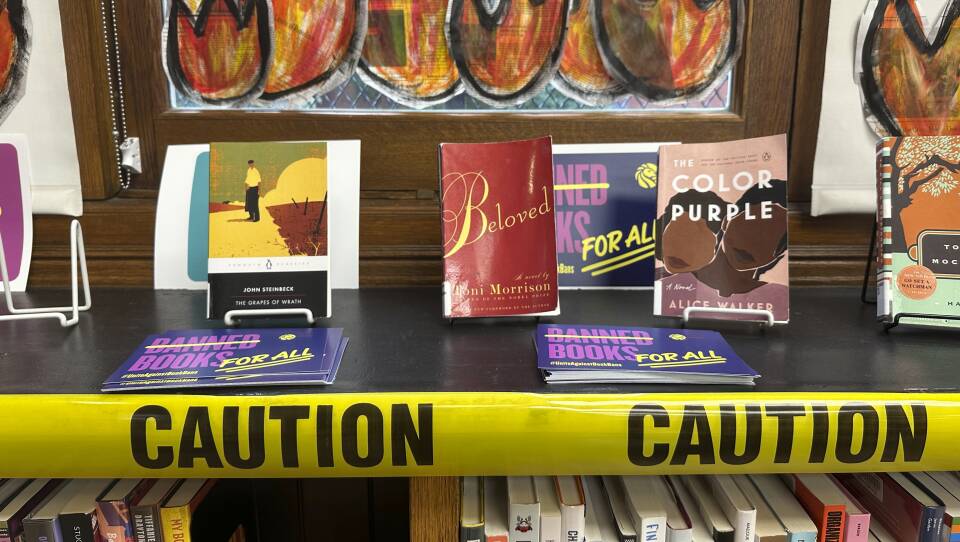Despite Americans’ deserved pride in the First Amendment, the United States has a long, sordid, and perhaps surprising history of book banning. In fact, it began here in Massachusetts in 1637, when Richard Morton’s New English Canaan was banned by the Puritan government for its criticism of Puritan customs and power structures. A decade later, an ancestor of renowned novelist Thomas Pynchon saw his own pamphlet banned and himself run out of the New World to avoid being prosecuted for heresy.
After that, Abolitionist literature attracted the bulk of censors’ ire, followed by the “Redeemer” movement in the South that aligned itself against Reconstruction. Fast forward to the Red Scares of the 1920s and ‘50s and books thought to be “promoting communism” were banned ad nauseam, while the “Satanic Panic” of the 1980s undercut the First Amendment for its own convoluted reasons.
All this to say, book banning is nothing new in the United States. But the 2020s have given rise to a new book banning movement, distinct in many ways from previous incarnations. This movement targets not only books by LGBTQ+ and BIPOC authors, but also works of literature that have been mainstays in curricula for generations, including The Giver, The Poetry of Robert Frost, and A Farewell to Arms.
Coming at a time of “free speech recession,” as Jacob Mchangama of the non-partisan think tank The Future of Free Speech called it at GBH’s Media Summit, proponents of book bans have also set their sights on libraries and librarians.
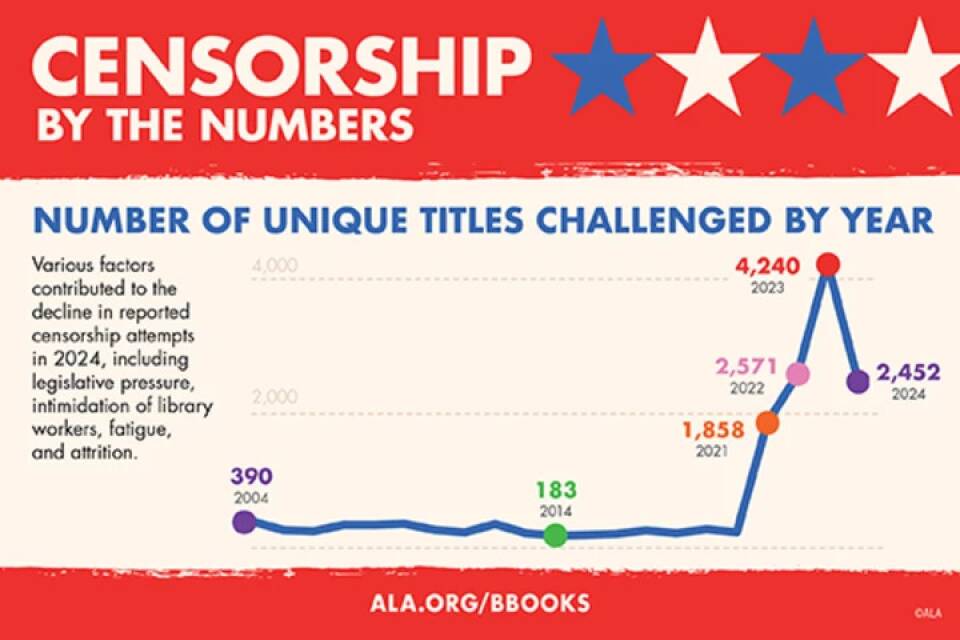
In response, an outspoken cohort of librarians, activists, authors, and literary enthusiasts is rising to oppose book banning and censorship. At the forefront of capturing these stories are two of GBH’s chief bibliophiles, Host Callie Crossley and Senior Producer Andrea Asuaje of Under the Radar with Callie Crossley. In January of 2025, the GBH News radio show and podcast launched its newest series, Unbound Pages, with the express intent of exploring the people at the heart of the movement against book bans.
What began as a one-off with the potential for a couple follow-up episodes has become a year-long “continuously updating” collection, with five episodes in the rearview and new ones slated for August and September, says Asuaje.
“The book banning movement has been growing for quite some time, but it experienced a big burst in 2021,” says Crossley. “We thought, let’s see the ways people are addressing it in various communities, and of course, a main theme became that most people don’t even have any idea about how big the movement is, how many books have been banned, and what has happened in communities to librarians and those who are trying to protect free speech, libraries, and access to books for kids.”
Indeed, per the American Library Association, only 230 titles were faced with challenges (which may result in access being retained, restricted, or revoked at a public school or library) in 2015, whereas 2023 saw 9,021 challenges, with the most frequently challenged title being Gender Queer.
Of the 1,000-plus book challenges reviewed by the Washington Post, just 11 individuals were responsible for the majority of them. “They’re filing hundreds of complaints at a time, most of the time not having read the books,” says Asuaje.
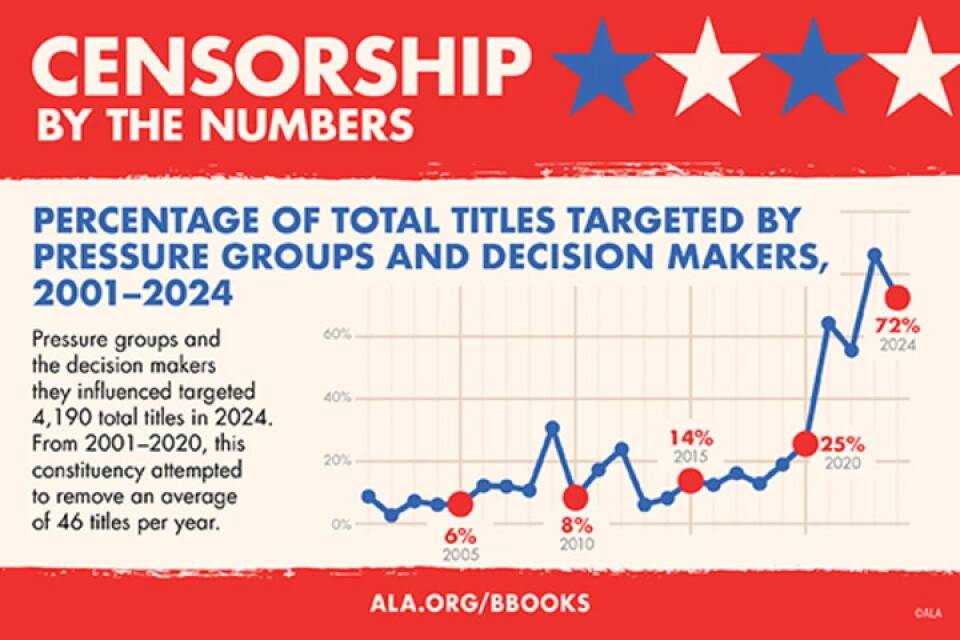
“Everyone we’ve talked to has said the same thing — it’s not about the books,” says Asuaje. “In one case, they banned the Captain Underpants series because it showed bad behavior in children. The titles being banned are arbitrary, falling under this vague umbrella of 'protecting children’ from 'divisive concepts.’”
What those turns of phrase conveniently elide, however, is whose children we are protecting. Echoing the argument of author and previous Under the Radar guest Jeanette Bradley, Asuaje says, “certainly not Black and brown kids, or kids with queer parents, if you’re not allowing them to read about themselves.
“People think it’s a Florida problem, or a Texas problem, but it’s actually happening in your neighborhood and you need to be aware of it and stand against it,” insists Asuaje.
“I can’t tell you how many librarians have been targeted, let alone elected to retire or leave the profession because of the harassment and threats they’ve faced within communities engaged in fierce book banning debates." — Calllie Crossley
Asked what’s unique about this movement, Crossley stresses that book bannings have rarely taken on such a national scope. “In the past, people from communities would organically come together to oppose a book being taught in their local schools.”
“One of the first people we interviewed for the series was Amanda Jones, author of That Librarian: The Fight Against Book Banning in America,” continues Crossley. “She’s from a very small town in Louisiana — went to school in that community, and everyone knew her. This organization came from out of town to challenge books by LGBTQ+ authors, and in a matter of weeks, she’s being called a 'pedophile’ and a 'groomer’ by people whose children she’s taught.”
“Now she sleeps with a gun under her pillow and worries about someone putting a pipe bomb in her car — in a place she’s lived her entire life,” says Asuaje. “It’s beyond words.”
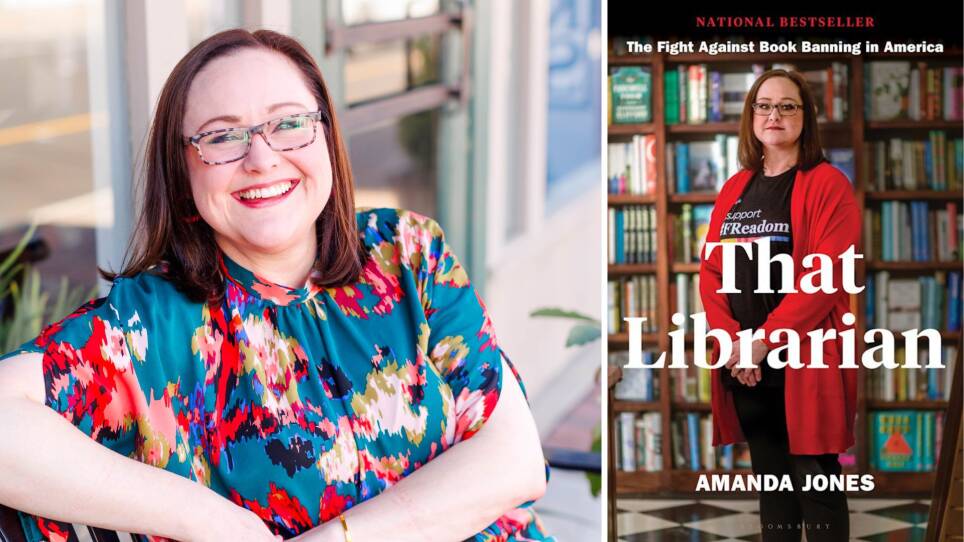
Over the course of the series so far, Under the Radar has covered the breadth and depth of the movement, from school districts and libraries in Florida and Louisiana to Wisconsin and New Hampshire (to name a few), to the Library of Congress itself, which now lacks a librarian in the wake of Dr. Carla Hayden’s recent dismissal. Just eight days before Hayden was fired via two-sentence-long email on behalf of President Donald Trump, Crossley interviewed the 14th Librarian of Congress and first woman and African American to hold the position.
The conversation centers on Dr. Hayden’s experience at the helm of “the mothership of the national library system,” as she calls it. Dr. Hayden was quick to emphasize how fundamental the public library is to democracy: “[They’ve] long been called the cornerstone of democracies: they’re free, anyone can walk through the doors and leave with the assurance that what they asked for will not be shared with anyone else.”
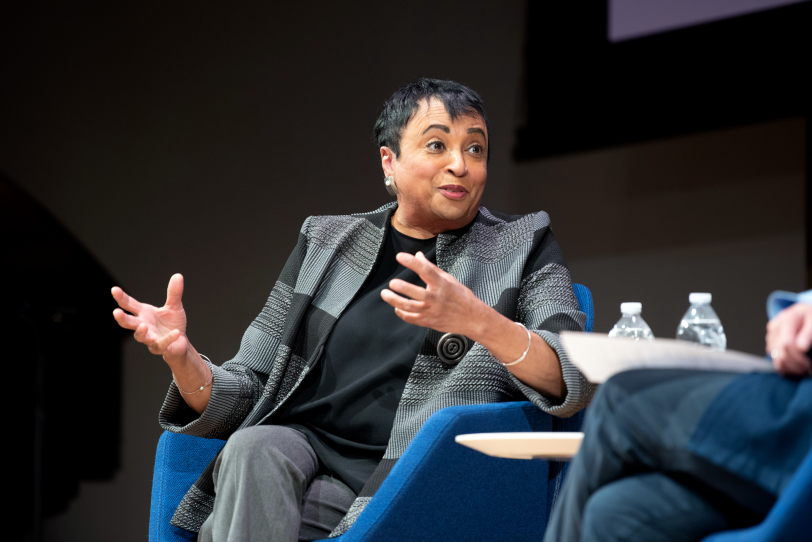
Given the crucial place books, libraries, and librarians occupy in our democracy, efforts to protect them have coalesced at municipal, state, and national levels. “Some organizations are sending free copies to Florida to replace books that have been pulled off the shelves,” says Crossley. Meanwhile, Asuaje notes, “some big library systems such as the Boston or the Brooklyn Public Libraries have established Books Unbanned programs that are open to all, through which people can check out e-books for banned works.”
“We did a full segment on Freedom to Read legislation that’s popping up in a few states — such as Massachusetts, Illinois, New Jersey, and Rhode Island – they’re becoming popular in more progressive states to solidify the right to read,” says Asuaje.
Both voracious readers, Crossley and Asuaje feel they have personal stake in the anti-book banning movement. “Being able to sit and read all afternoon is my idea of heaven,” says Crossley. “The first time I was able to recognize the words on the page was sitting on my dad’s lap while he was reading the comics — I think it was Sally. He would read to me, tracing his finger along the words in the speech bubbles. But my mom was the really serious reader in the house, and my sister and I followed her example.
“I’ve always loved libraries. I grew up in Memphis, Tennessee, and large parts of the city were, in essence, segregated. At the Black branch closest to us, the librarian was everything. She gave us so many books and opened up the world for us.
“Funnily enough, if my sister and I had acted up, my parents’ most effective punishment was to cancel our weekly library trip,” Crossley remembers. “You would have thought they had put us out in the cold with no food. We wailed, we cried, we begged! ‘No, please, please! We won’t do it anymore!’”
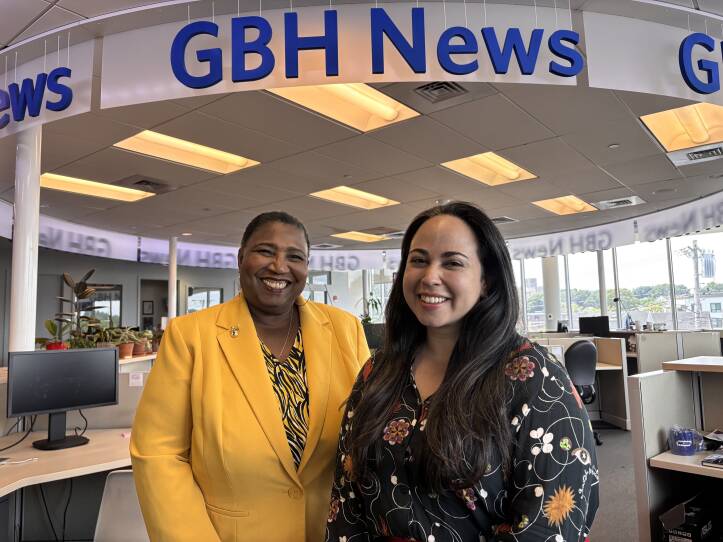
Asuaje shares a similarly deep love for libraries and literature: “For as long as I can remember, reading’s been a constant in my life. Growing up in Venezuela, I taught myself to read when I was four by sitting in the library of my grandfather, who was an incredible reader and writer of nonfiction and fiction. When I came to the U.S., the library was an important space for me as I learned how to speak English. My parents studied here, so they knew it was a place you could get just about any book you wanted.”
As for what they’d like listeners to take from Unbound Pages, Crossley and Asuaje are adamant: “I don’t know about you, but I don’t want people legislating what the rest of us can or can’t read,” Crossley. “People need to know, and this has to be called out, because it’s dangerous and keeps getting worse.”
“This is the slipperiest of slopes,” Asuaje says. “In any society throughout history, book banning has a very direct correlation to authoritarianism. It’s a straight line, a harbinger.”
Check out this astounding list of frequently banned books, compiled by GBH News’ Steph Conquest-Ware. Tune in to Under the Radar with Callie Crossley on GBH 89.7 at 6pm on Sunday, or listen to the podcast.
On August 8, Callie Crossley was inducted into the National Association of Black Journalists (NABJ) 2025 Hall of Fame. NABJ pays homage to legendary Black journalists and communicators who have made outstanding contributions to the news and media industries.
Over her career, Crossley has embodied a true journalist’s curiosity, unwavering dedication to telling important stories that haven’t made headlines, and commitment to elevating the voices of people driving change in our communities.
Alongside her work hosting Under the Radar with Callie Crossley, she co-hosts The Culture Show and is a frequent contributor to Boston Public Radio on GBH News. Crossley’s numerous honors include a National Emmy Award, the prestigious Gold Baton DuPont Columbia, and an Oscar nomination as Producer/Director/Writer for the Bridge to Freedom hour in the documentary series, Eyes on the Prize: America’s Civil Rights Years.
Now and going forward, we’re thrilled to celebrate Callie and her innumerable contributions to journalism and public media.
